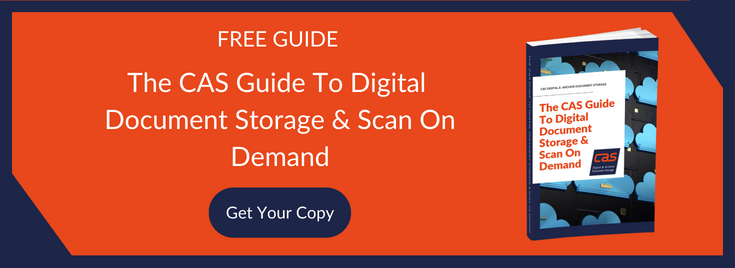If you're a medical facility that treats patients directly, runs meetings, or engages in confidential research, your organisation will stack up a vast number of permanent records as the years roll by. While you won't always need to access these records every day, patient data can quickly overwhelm workplaces by eating up storage space with paperwork.
 It can be tempting for surgeries and offices without dedicated archives to convert a bare-bones self-storage unit into a cheap 'fling and forget' solution to document pile-ups.
It can be tempting for surgeries and offices without dedicated archives to convert a bare-bones self-storage unit into a cheap 'fling and forget' solution to document pile-ups.
However, this strategy is at best a stopgap measure. At worst? A damaging liability. Severe legal and operational risks are attached to keeping sensitive documents in a storage unit, no matter how secure it appears to be. Here's why you should avoid using self-store for your medical records and contact a trusted, secure off-site provider such as CAS Ltd.
1) Identity Theft
Self-storage units tend to have a single, easily breakable padlock or door lock as their sole measure of security. Inadequate protection makes unguarded storage units a prime target for opportunistic burglars, who can then sell your information to identity thieves, or use it themselves to impersonate clients.
2) Environmental Damage
Sheds and cheaper indoor units are often prone to condensation and damp, putting paper records at risk of water damage. Limited ventilation can result in mould, rust, and corrosion damaging storage boxes and sensitive slides (e.g. X-rays). There's no real UV protection, causing old records to decay faster. And in-built fire suppression systems can spoil unprotected paperwork in the event of a disaster.
3) Surveillance And Security
Isolated sites with a handful of centralised, limited cameras and no alarms make prime targets for criminals. Many smaller and cheaper storage operations also offer no payouts or replacements in the event of theft or accidental damage. And you may also find your unit unexpectedly auctioned off (legally) to an identity thief if you exceed the lease - many companies don't automatically prompt you to renew!
4) Limited Accessibility
Retrieving and sorting your stacked-up files from a giant heap can waste staff time and effort better spent elsewhere. If you don't provide your own storage racks and shelving, organising cardboard boxes to find the right one can often prove tricky.
5) Legal Liabilities (GDPR 2018)
Storing your records without adequate accountability, and security might mean that you're violating the GDPR (2018). The GDPR’s data protection provisions apply to printed records as well as digital. You could still be fined or prosecuted for non-compliance, particularly if any files are tampered with or stolen.
6) Lack Of Criminal Activity Oversight
Without a dedicated protection agreement in place, you're liable for the results and damages of any criminal activity involving self-stored records. If there's absolutely other option, you may be better off keeping them on-site in inaccessible, 'dead' storage.
7) Weak Physical Protections
How secure are the buildings, barriers, walls, and fencing around the unit itself? Even if the facility looks enclosed at first glance, card readers, chain-link fences, and security barriers are all easily bypassed by determined criminals. If the site isn't patrolled around the clock, the risks of a break-in increase. Secure warehouses and dedicated, elevated offices are a far better bet for high-security storage deposits.
Secure Document Retention And Management From CAS Ltd.
If you're looking for a safe and secure storage alternative to self-storage units in the UK, CAS has you covered. Our off-site, secure archiving service comes with multi-layer, locked security doors, electronic monitoring, insurance and guarantees, and constant manual surveillance. The confidential records we store for our clients stay confidential. Contact us to learn more. Image Source: Canva
Image Source: Canva
